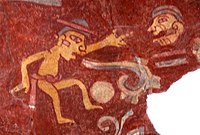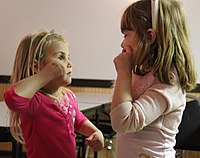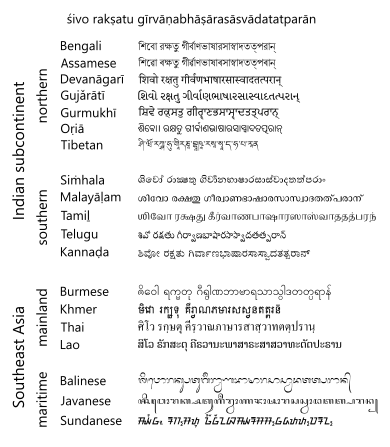Infrastructure tools to support an effective radiation oncology learning health system
Introduction




Language is a structured system of communication that consists of grammar and vocabulary. It is the primary means by which humans convey meaning, both in spoken and signed forms, and may also be conveyed through writing. Human language is characterized by its cultural and historical diversity, with significant variations observed between cultures and across time. Human languages possess the properties of productivity and displacement, which enable the creation of an infinite number of sentences, and the ability to refer to objects, events, and ideas that are not immediately present in the discourse. The use of human language relies on social convention and is acquired through learning.
Estimates of the number of human languages in the world vary between 5,000 and 7,000. Precise estimates depend on an arbitrary distinction (dichotomy) established between languages and dialects. Natural languages are spoken, signed, or both; however, any language can be encoded into secondary media using auditory, visual, or tactile stimuli – for example, writing, whistling, signing, or braille. In other words, human language is modality-independent, but written or signed language is the way to inscribe or encode the natural human speech or gestures.
Depending on philosophical perspectives regarding the definition of language and meaning, when used as a general concept, "language" may refer to the cognitive ability to learn and use systems of complex communication, or to describe the set of rules that makes up these systems, or the set of utterances that can be produced from those rules. All languages rely on the process of semiosis to relate signs to particular meanings. Oral, manual and tactile languages contain a phonological system that governs how symbols are used to form sequences known as words or morphemes, and a syntactic system that governs how words and morphemes are combined to form phrases and utterances.
The scientific study of language is called linguistics. Critical examinations of languages, such as philosophy of language, the relationships between language and thought, how words represent experience, etc., have been debated at least since Gorgias and Plato in ancient Greek civilization. Thinkers such as Jean-Jacques Rousseau (1712–1778) have argued that language originated from emotions, while others like Immanuel Kant (1724–1804) have argued that languages originated from rational and logical thought. Twentieth century philosophers such as Ludwig Wittgenstein (1889–1951) argued that philosophy is really the study of language itself. Major figures in contemporary linguistics of these times include Ferdinand de Saussure and Noam Chomsky. (Full article...)
Selected language -

- "We're going to get naked" ([N]os nudi [f]iemus)
– "We came to drink" (Bibere venimus)
- "Now you're talking a lot" (Ia[m] multu[m] loquimini)
- "We may be called away" (Avocemur)
- "We're having three" [drinks] (Nos tres tenemus)
The scene may convey a proverbial expression equivalent to both "Let sleeping dogs lie" and "Eat, drink, and be merry, for tomorrow we may die."
Latin and Greek were the dominant languages of the Roman Empire, but other languages were regionally important. Latin was the original language of the Romans and remained the language of imperial administration, legislation, and the military throughout the classical period. In the West, it became the lingua franca and came to be used for even local administration of the cities including the law courts. After all freeborn inhabitants of the Empire were granted universal citizenship in 212 AD, a great number of Roman citizens would have lacked Latin, though they were expected to acquire at least a token knowledge, and Latin remained a marker of "Romanness".
Koine Greek had become a shared language around the eastern Mediterranean and into Asia Minor as a consequence of the conquests of Alexander the Great. The "linguistic frontier" dividing the Latin West and the Greek East passed through the Balkan Peninsula. Educated Romans, particularly those of the ruling elite, studied and often achieved a high degree of fluency in Greek, which was useful for diplomatic communications in the East even beyond the borders of the Empire. The international use of Greek was one condition that enabled the spread of Christianity, as indicated for example by the choice of Greek as the language of the New Testament in the Bible and its use for the ecumenical councils of the Christian Roman Empire rather than Latin. With the dissolution of the Empire in the West, Greek became the more dominant language of the Roman Empire in the East, later referred to as the Byzantine Empire. (Full article...)
Did you know (auto-generated)

- ... that the album Topical Dancer was created using four different languages?
- ... that History of the Mission of the Evangelical Brothers in the Caribbean by C. G. A. Oldendorp was the first book to publish Igbo-language terms in 1777?
- ... that the Brazilian social media page Tupinizando is dedicated to the promotion of Old Tupi, a dead language?
- ... that Dorothy Stanley was once said to be one of the last speakers of the Miwok languages?
- ... that Chief Rabbi of Madrid Yehuda Benasouli's first language was Castilian Spanish, but he also knew Hebrew, French, Arabic, Ladino, Haketia, and some English?
- ... that Soviet politician Pavel Chioru wanted "Moldovan", which he developed from a dialect of Romanian, to serve as a language of the "exploited" against the supposedly upper-class Romanian?
More did you know -
- ...that linguist Asim Peco is an expert in the language of eastern Herzegovina?
- ...that three different languages that used to be spoken in Nicaragua are now extinct?
- ...that Russian is spoken in Israel by about 20% of the total population?
- ...that the name of the koala derives from the word gula in Dharuk and other Yuin–Kuric languages?
Categories
Linguistics: Computational linguistics • Grammar • Historical linguistics • Morphology • Phonetics • Phonology • Pragmatics • Reading • Semantics • Sociolinguistics • Syntax • Writing
Languages: Language families • Pidgins and creoles • Sign languages
Linguists: By nationality • Historical linguists • Morphologists • Phoneticians • Phonologists • Sociolinguists • Syntacticians • Translators
Stubs: Constructed languages • Languages • Linguists • Pidgins and creoles • Typography • Vocabulary and usage • Writing systems
Full Language category tree
|
|---|
|
Select [►] to view subcategories
|
Related portals
Selected topic -
The grammar of the Sanskrit language has a complex verbal system, rich nominal declension, and extensive use of compound nouns. It was studied and codified by Sanskrit grammarians from the later Vedic period (roughly 8th century BCE), culminating in the Pāṇinian grammar of the 4th century BCE. (Full article...)
Selected picture -

The Rosetta Stone is an ancient Egyptian granodiorite stele inscribed with a decree issued at Memphis in 196 BC on behalf of King Ptolemy V. The decree appears in three scripts: the upper text is Ancient Egyptian hieroglyphs, the middle portion Demotic script, and the lowest Ancient Greek.
Language News
- 22 November 2024 – Censorship in Belarus
- In a speech at Minsk State Linguistic University, Belarusian President Alexander Lukashenko threatens to shutdown the Internet in his country if there are mass protests before the upcoming presidential election after the previous election saw mass protests broke out. (Rferl)
- 20 August 2024 – Germany–Iran relations
- Following the ordered closure of the Islamic Centre Hamburg in Hamburg, Germany, Iran orders the closure of two branches of a German language school in Tehran for "breaching Iranian law, committing various illegal actions and extensive financial violations." In response, Germany summons the Iranian ambassador. (DW)
- 19 July 2024 –
- Ukrainian linguist, nationalist politician, and former People's Deputy Iryna Farion is shot and killed in Lviv, Ukraine by an unknown assailant. (Reuters)
- 27 June 2024 –
- Ukrainian president Volodymyr Zelenskyy signs a law establishing English as an official language of international communication in Ukraine. (The Kyiv Independent)
Topics

Languages of Africa: Arabic, Chadic, Cushitic, Kanuri, Maasai, Setswana, Swahili, Turkana, Xhosa, Yoruba, Zulu, more...
Languages of the Americas: Aleut, Carib, Cherokee, Inuktitut, Iroquois, Kootenai, Mayan, Nahuatl, Navajo, Quechuan, Salish, American Sign Language, more...
Languages of Asia: Arabic, Assamese, Balochi, Bengali, Chinese, Japanese, Hajong, Hebrew, Hindustani, Kannada, Kokborok, Marathi, Khasi, Korean, Kurdish, Malayalam, Manipuri, Meithei, Mongolian, Persian, Rajasthani, Sindhi, Sanskrit, Sylheti, Tamil, Tanchangya, Tulu, Telugu, Tibetan, Thai, Turkish, Vietnamese, Khowar, more...
Languages of Austronesia: Austric, Fijian, Hawaiian, Javanese, Malagasy, Malay, Maori, Marshallese, Samoan, Tahitian, Tagalog, Tongan, Auslan, more...
Languages of Europe: Basque, Czech, Danish, Dutch, English (book), French, German, Greek, Italian, Latin, Leonese, Norwegian, Polish, Portuguese, Romanian, Russian, Slovak, Spanish, Ukrainian more...
Constructed languages: Esperanto, Ido, Volapük, more...
Agglutinative language, Analytic language, Constructed language, Creole, Context-free language, Extinct language, Dialect, Fusional language, Inflectional language, International language, Isolating language, Language isolate, National language, Natural language, Pidgin, Pluricentric language, Polysynthetic language, Proto-language, Sign language, Spoken language, Synthetic language, Variety (linguistics)

Applied linguistics, Cognitive linguistics, Accent (dialect), Computational linguistics, Descriptive linguistics, Eurolinguistics, Generative linguistics, Historical linguistics, Lexicology, Lexical semantics, Morphology, Onomasiology, Phonetics, Phonology, Pragmatics, Prescription, Prototype semantics, Psycholinguistics, Semantics, Stylistics, Sociolinguistics, Syntax
See also: List of linguists

Alphabets: Arabic alphabet, Bengali alphabet, Cyrillic alphabet, Hebrew alphabet, Latin alphabet, more...
Other writing systems: Abjad, Abugida, Braille, Hieroglyphics, Logogram, Syllabary, SignWriting, more..
See also: History of the alphabet, Script
Associated Wikimedia
The following Wikimedia Foundation sister projects provide more on this subject:
-
 Commons
Commons
Free media repository -
 Wikibooks
Wikibooks
Free textbooks and manuals -
 Wikidata
Wikidata
Free knowledge base -
 Wikinews
Wikinews
Free-content news -
 Wikiquote
Wikiquote
Collection of quotations -
 Wikisource
Wikisource
Free-content library -
 Wikiversity
Wikiversity
Free learning tools -
 Wiktionary
Wiktionary
Dictionary and thesaurus
Find a language
| Enter an ISO 639 code to find the corresponding language article |
-

-

-

-

-
Random portal


























